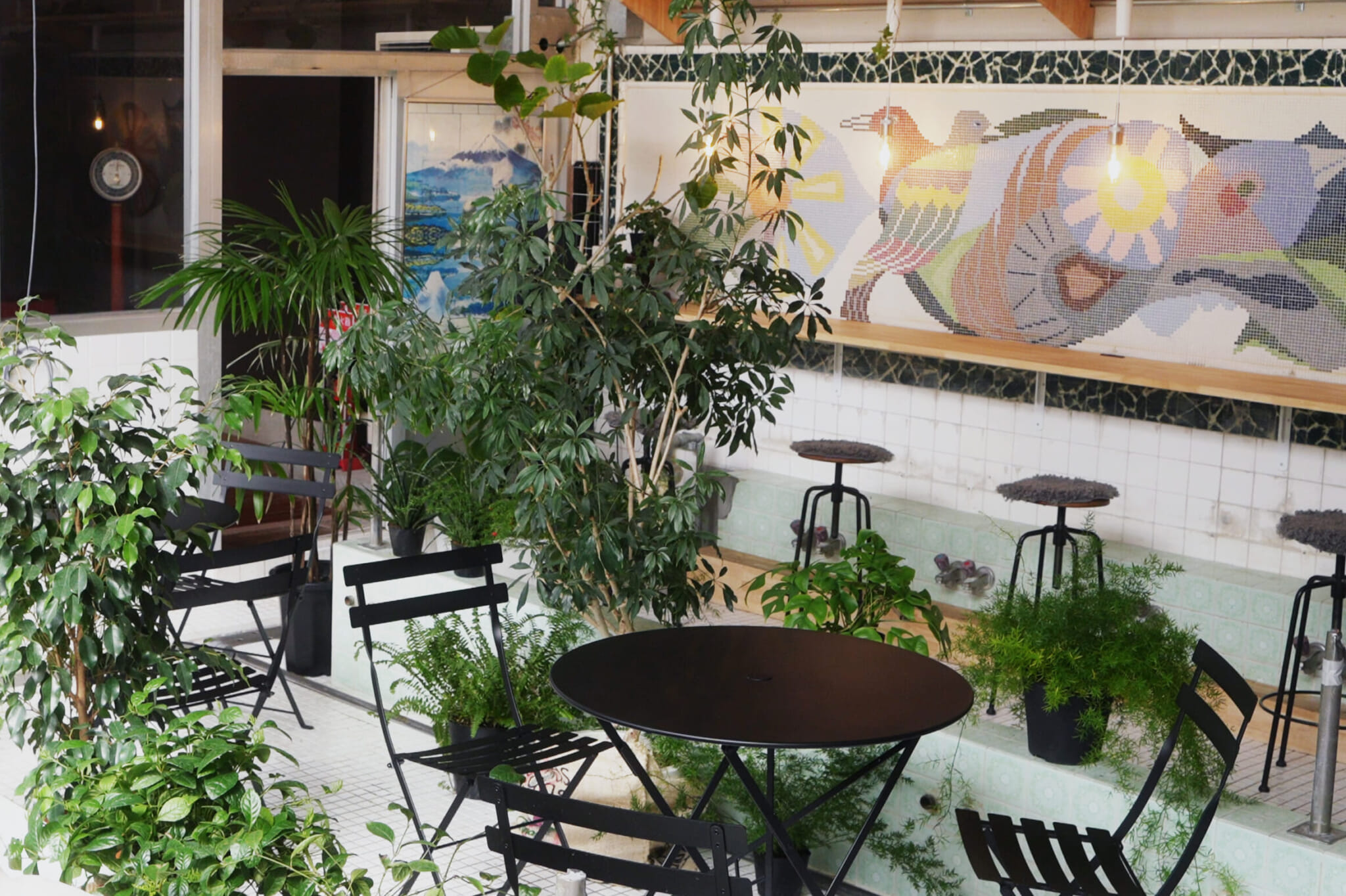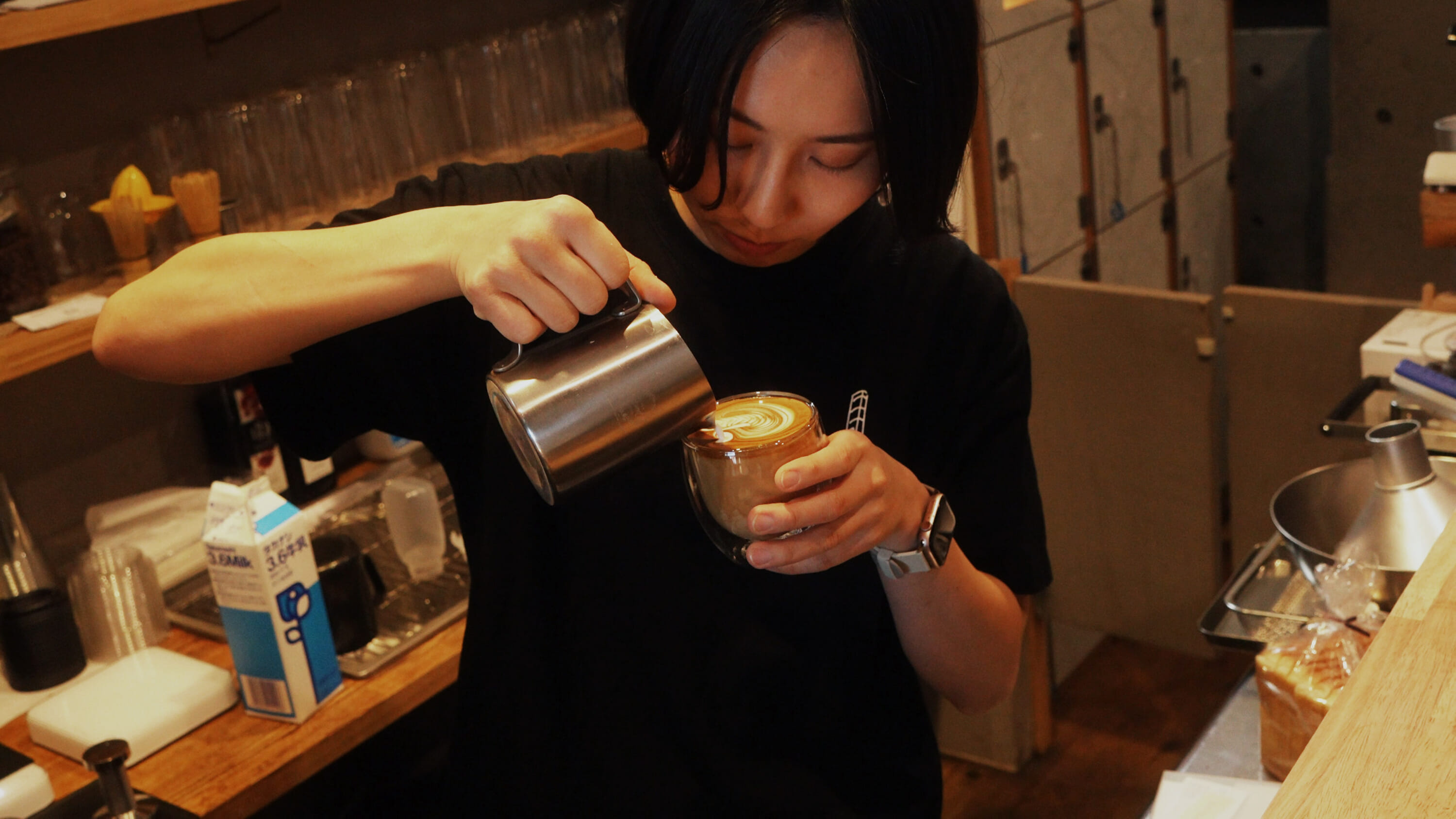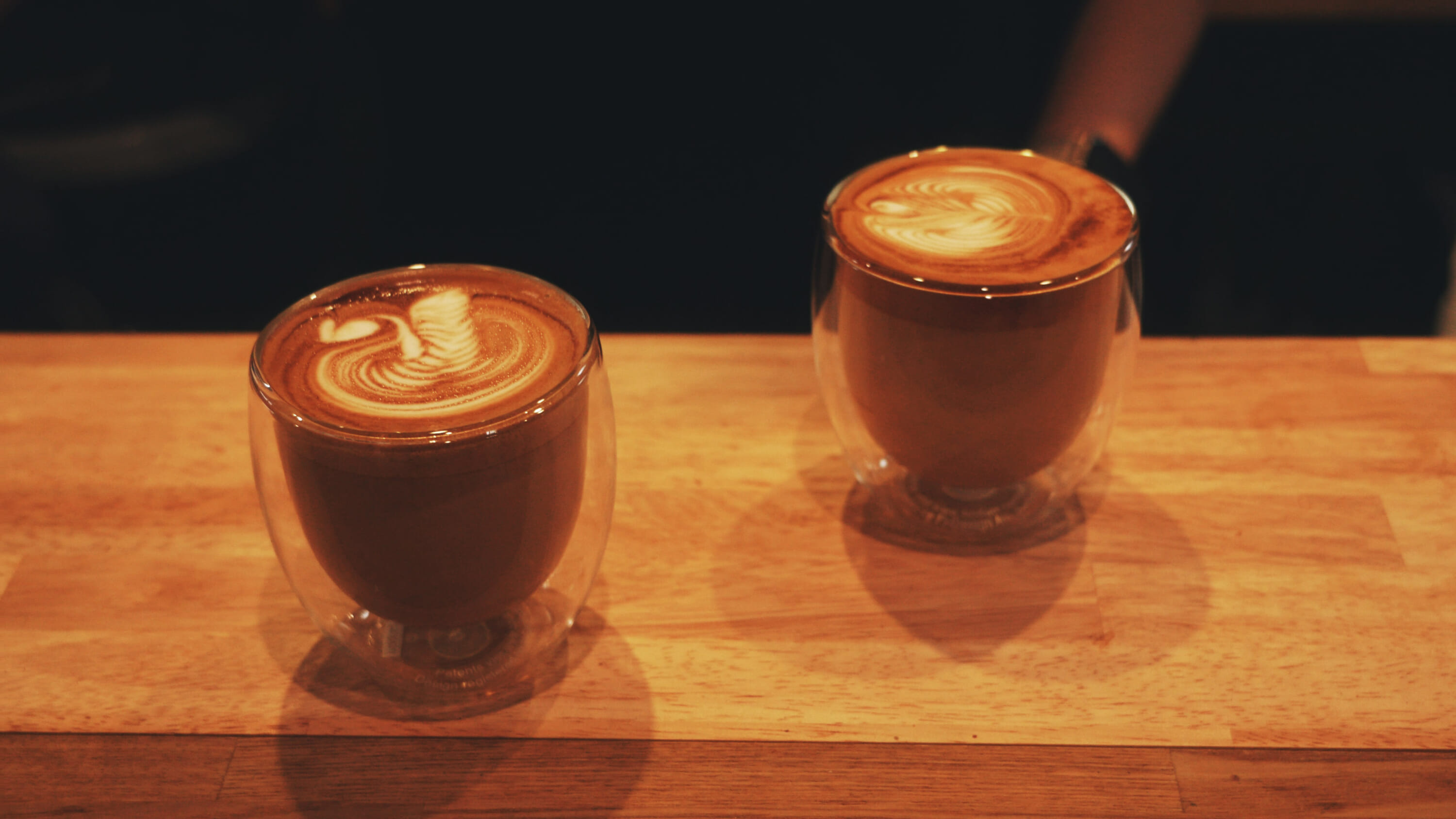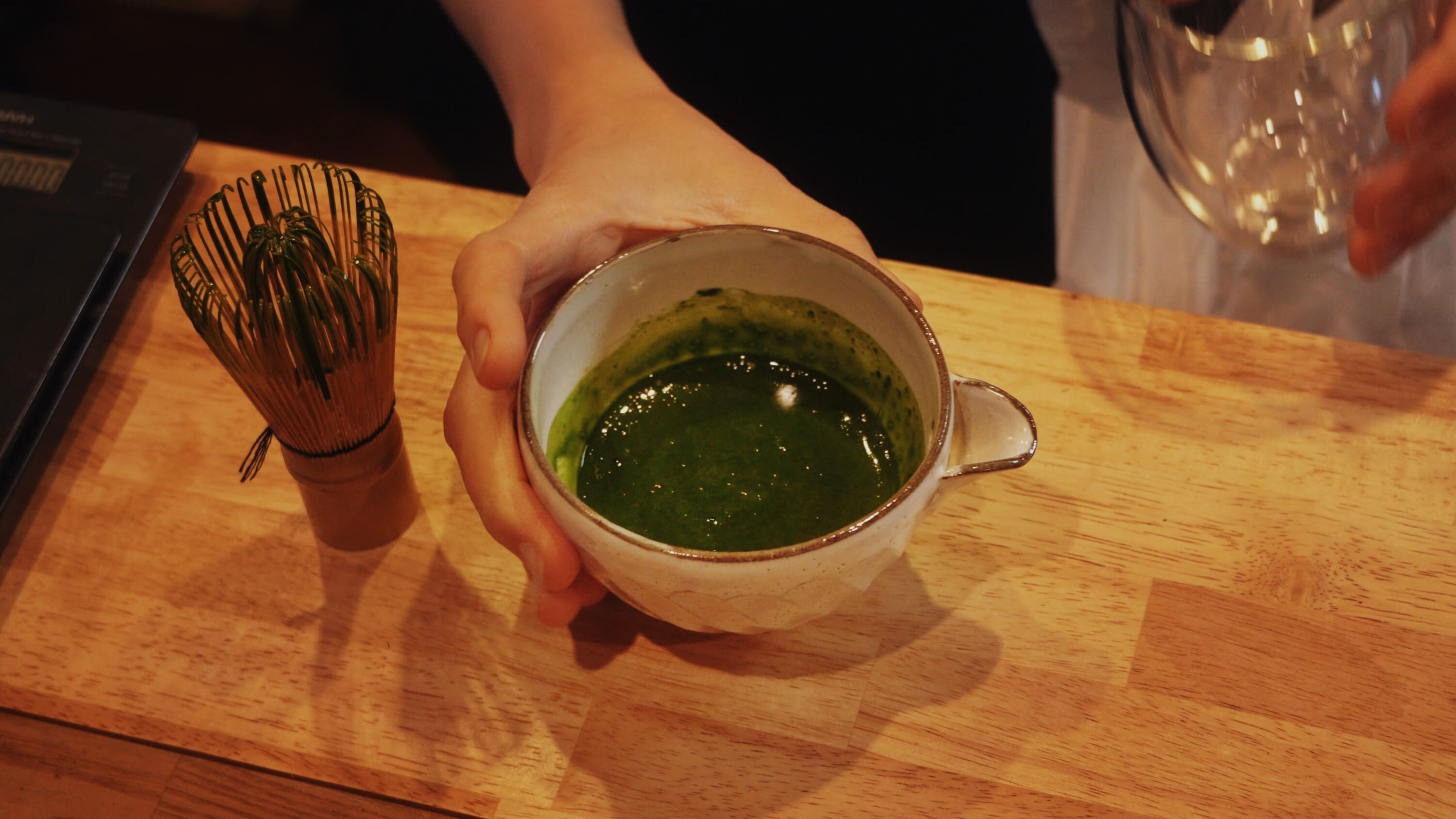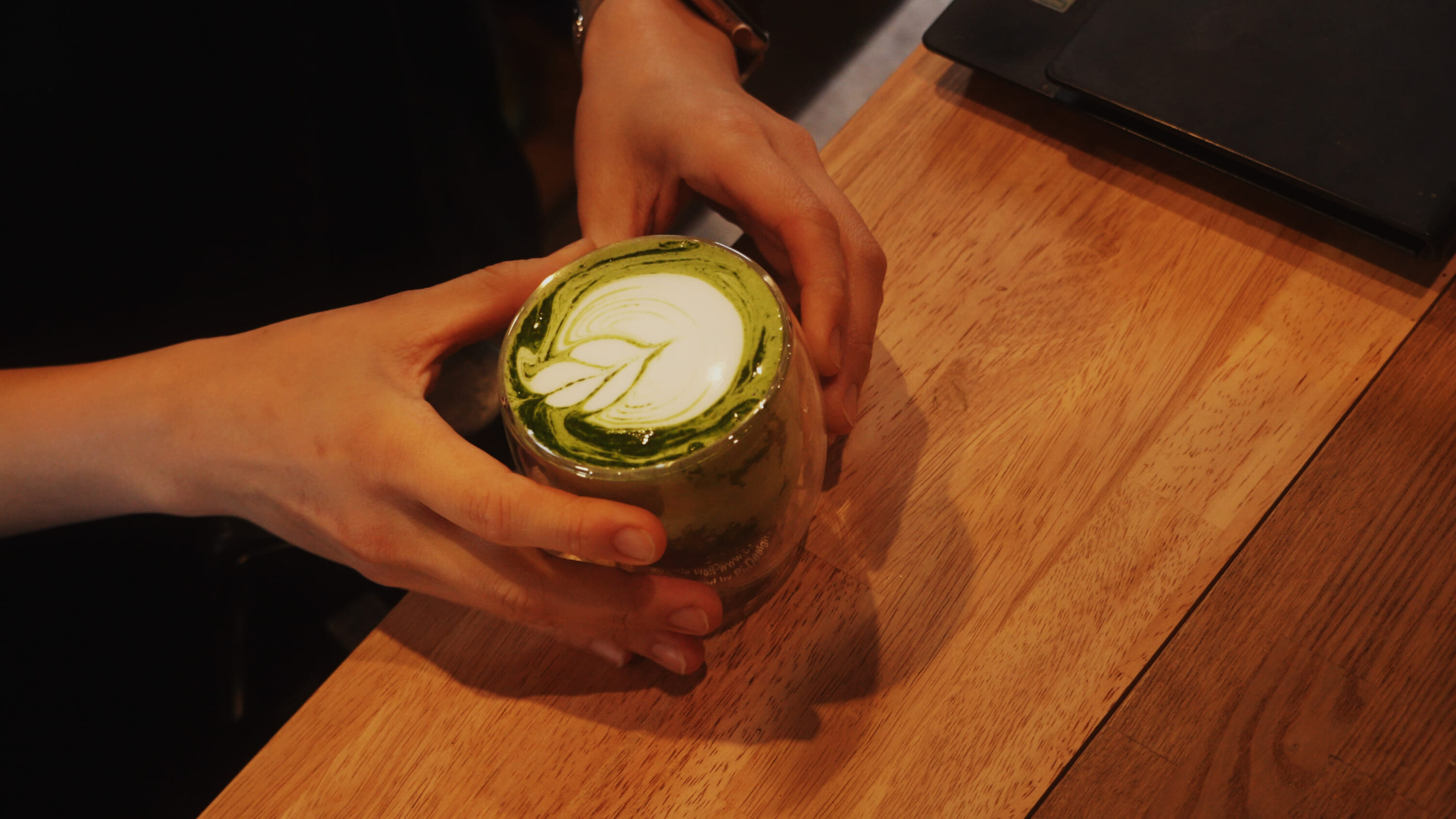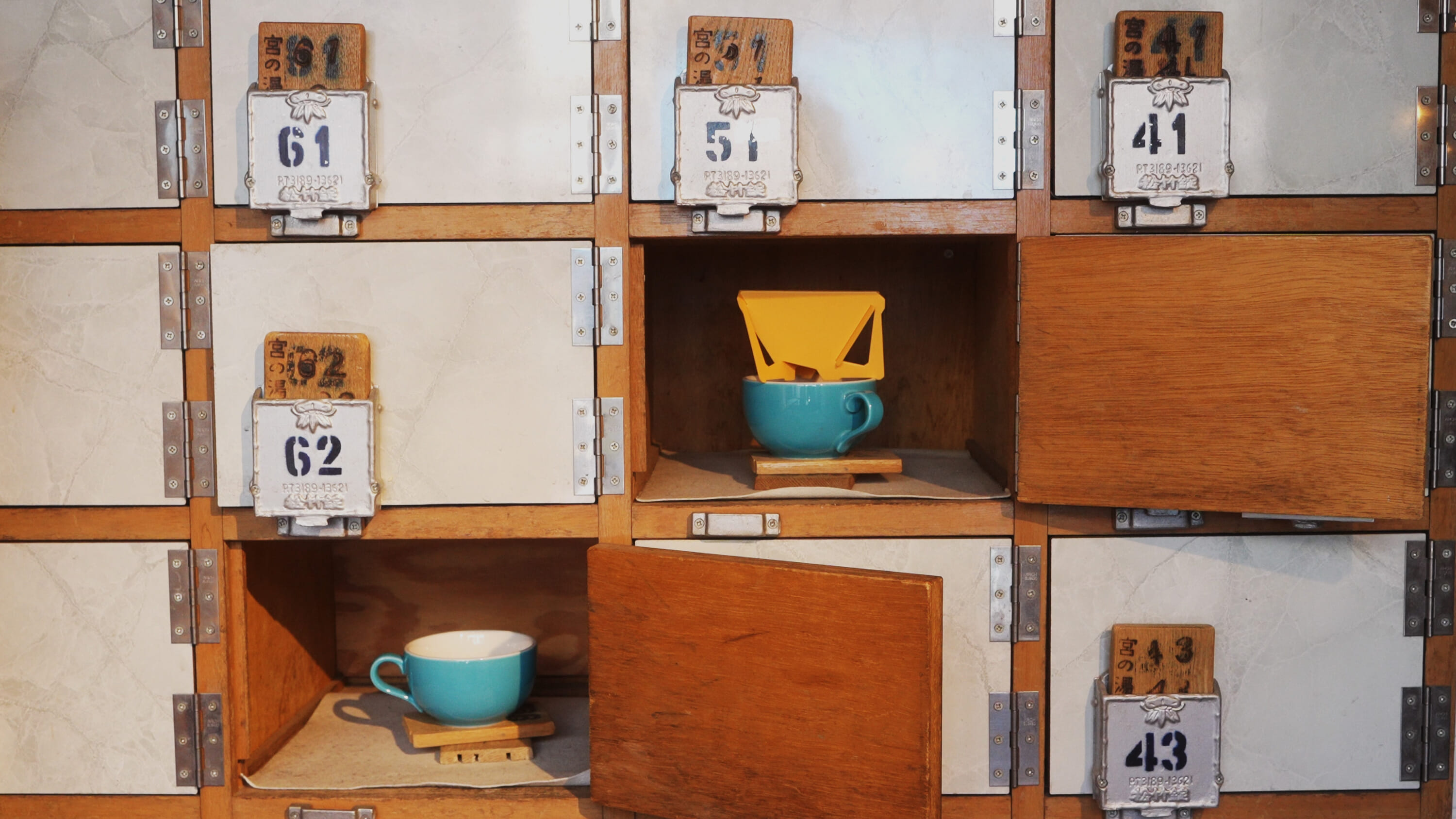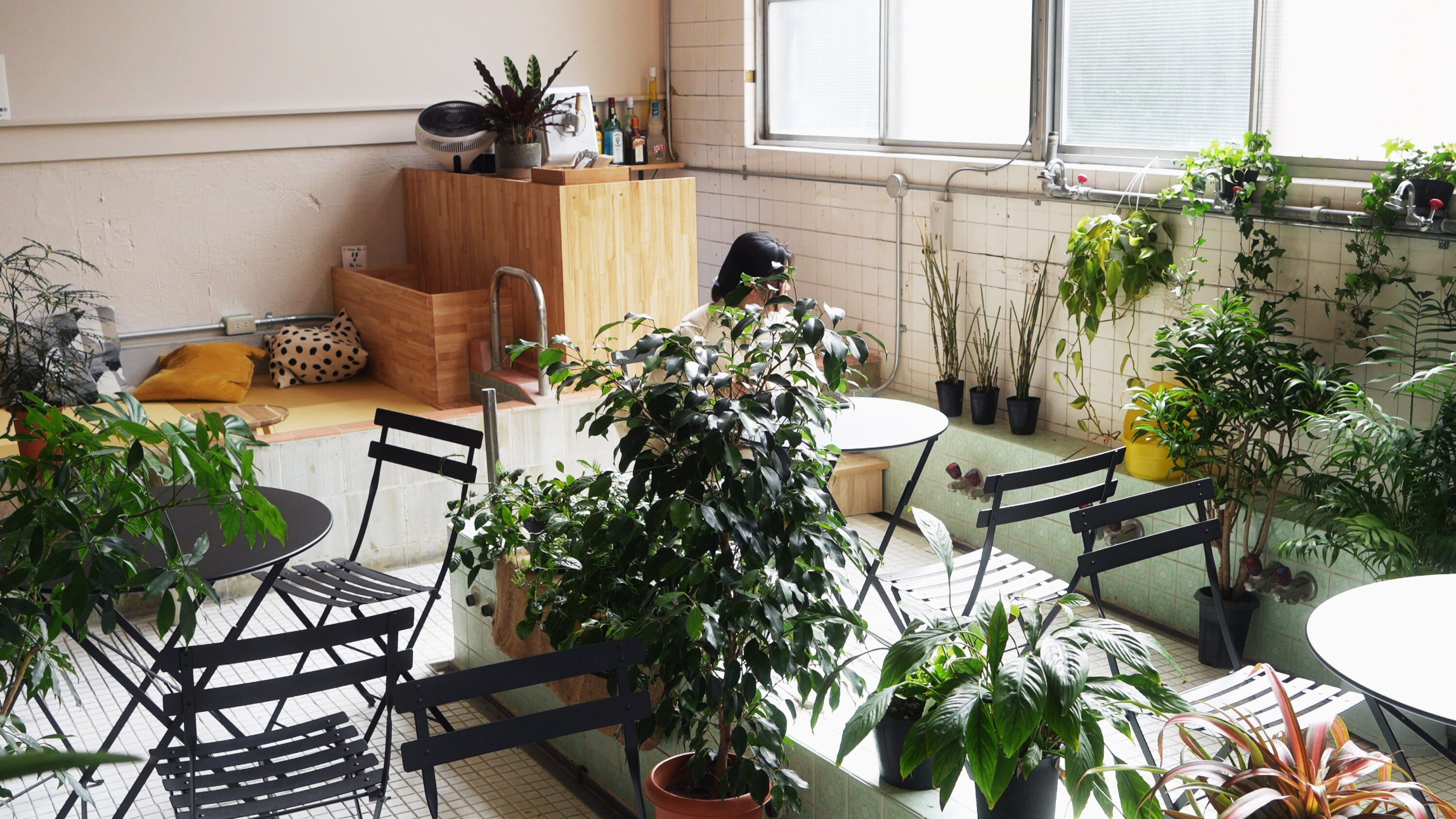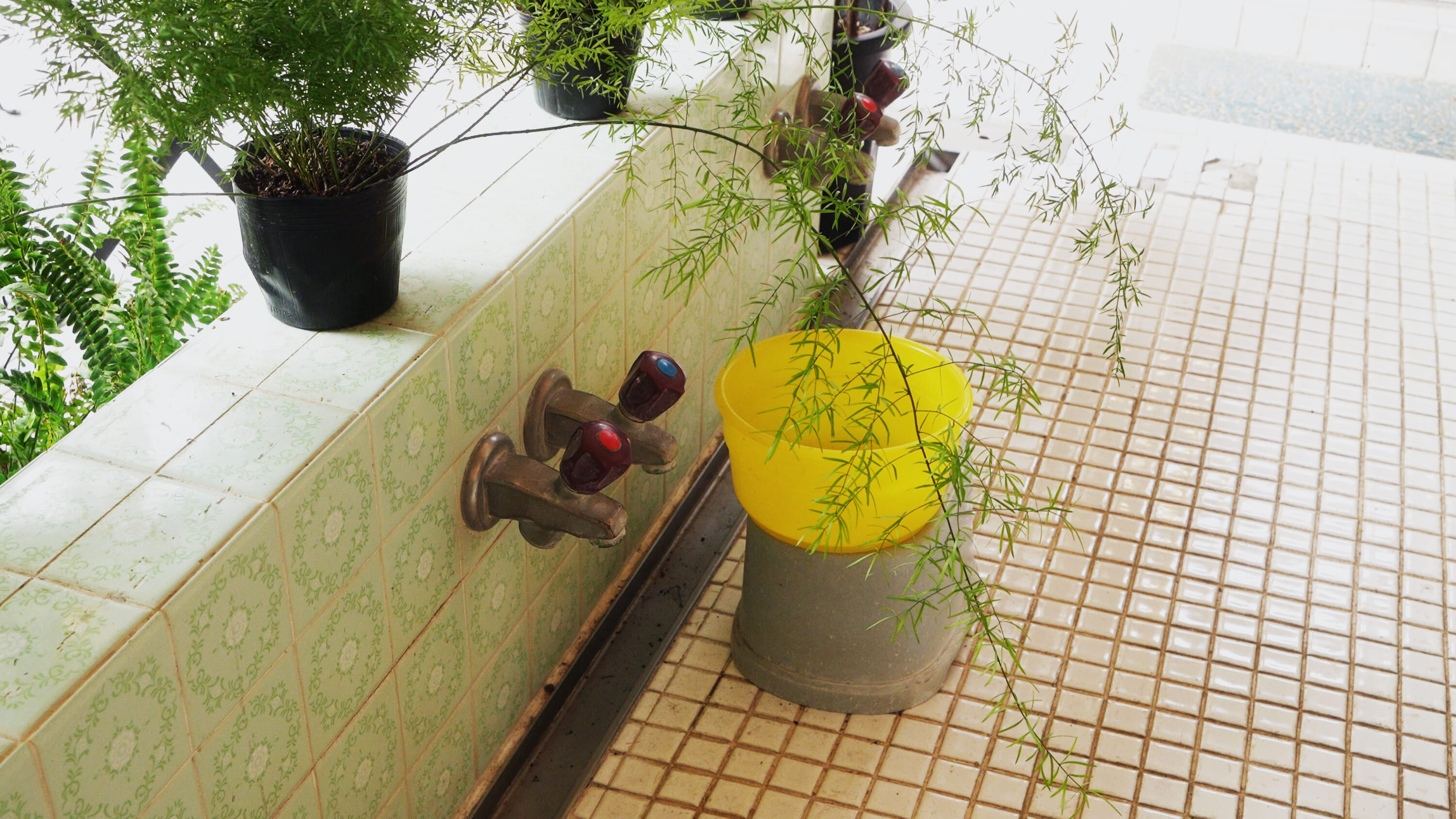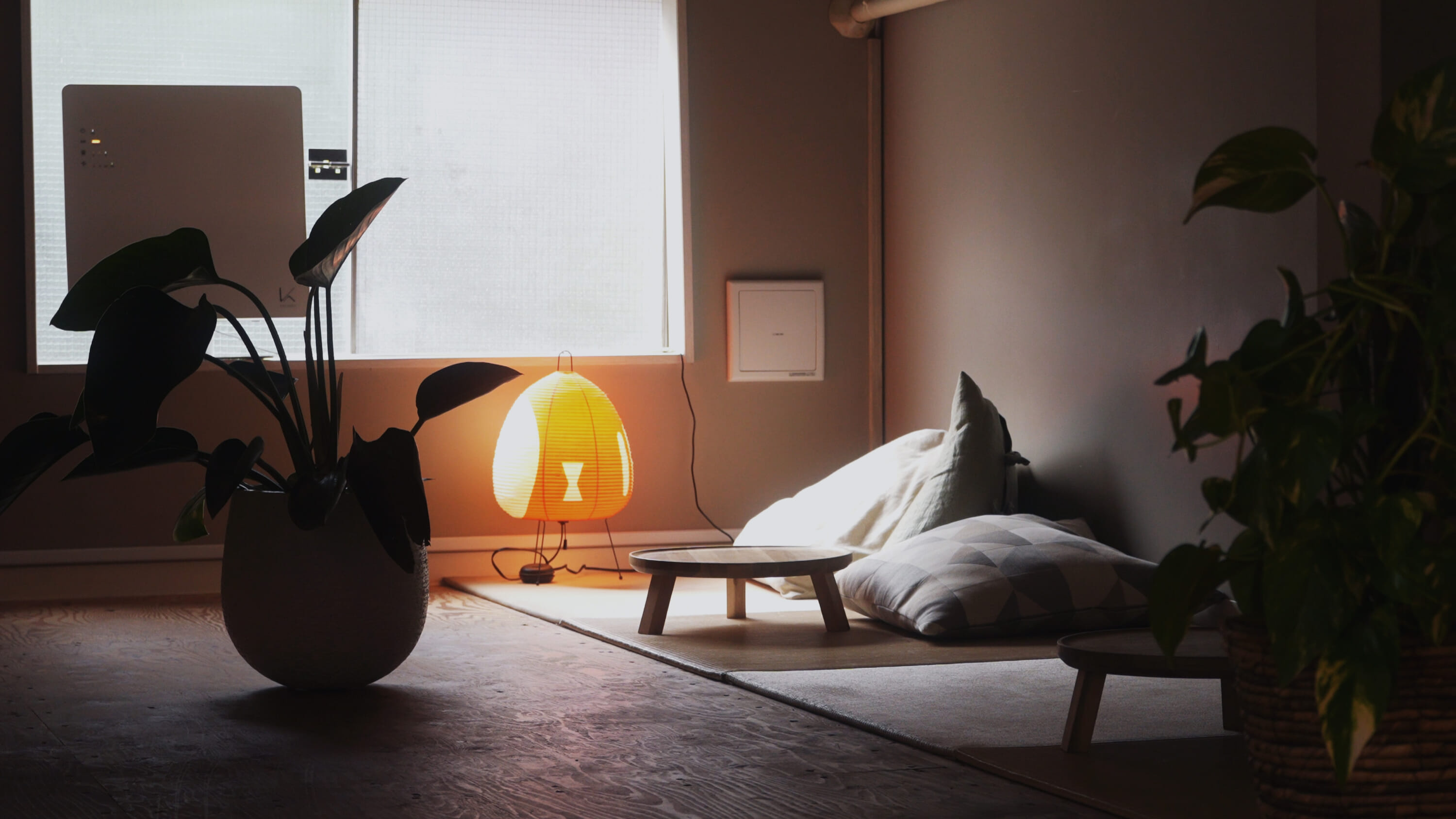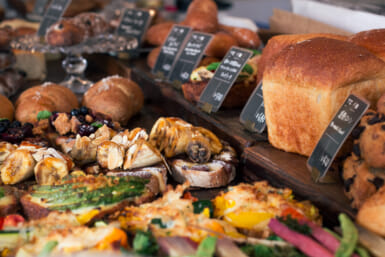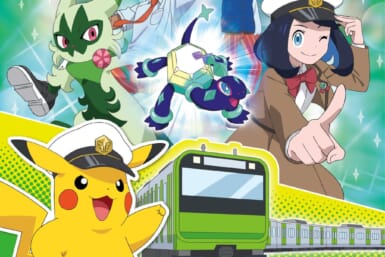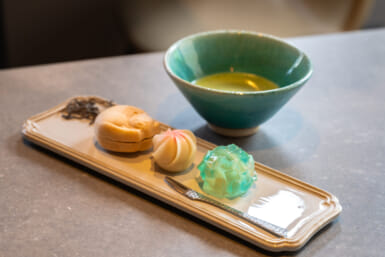One sunny Thursday morning, I hop on my bike on something of a mission. I’m leaving behind the student-lined streets of Takadanobaba for the calmer, leafier neighborhood of Nezu, in Tokyo’s north-eastern corner. While best known by tourists for Nezu Shrine, Nezu is primarily a residential neighborhood. Having avoided being badly damaged during World War II, it retains a certain old-school charm.
Narrow alleyways dotted with traditional wooden houses snake between the main roads, and izakaya of a more scruffy variety lie awaiting evening visits. It’s here where I find my destination: Miyano-yu, a cafe built into an old sento bathhouse. I’m greeted by Emi Osato, the cafe’s manager, who’s setting up for the day sporting an original Miyano-yu T-shirt with an illustration of the cafe’s front, and a rough map of the surrounding neighborhood.
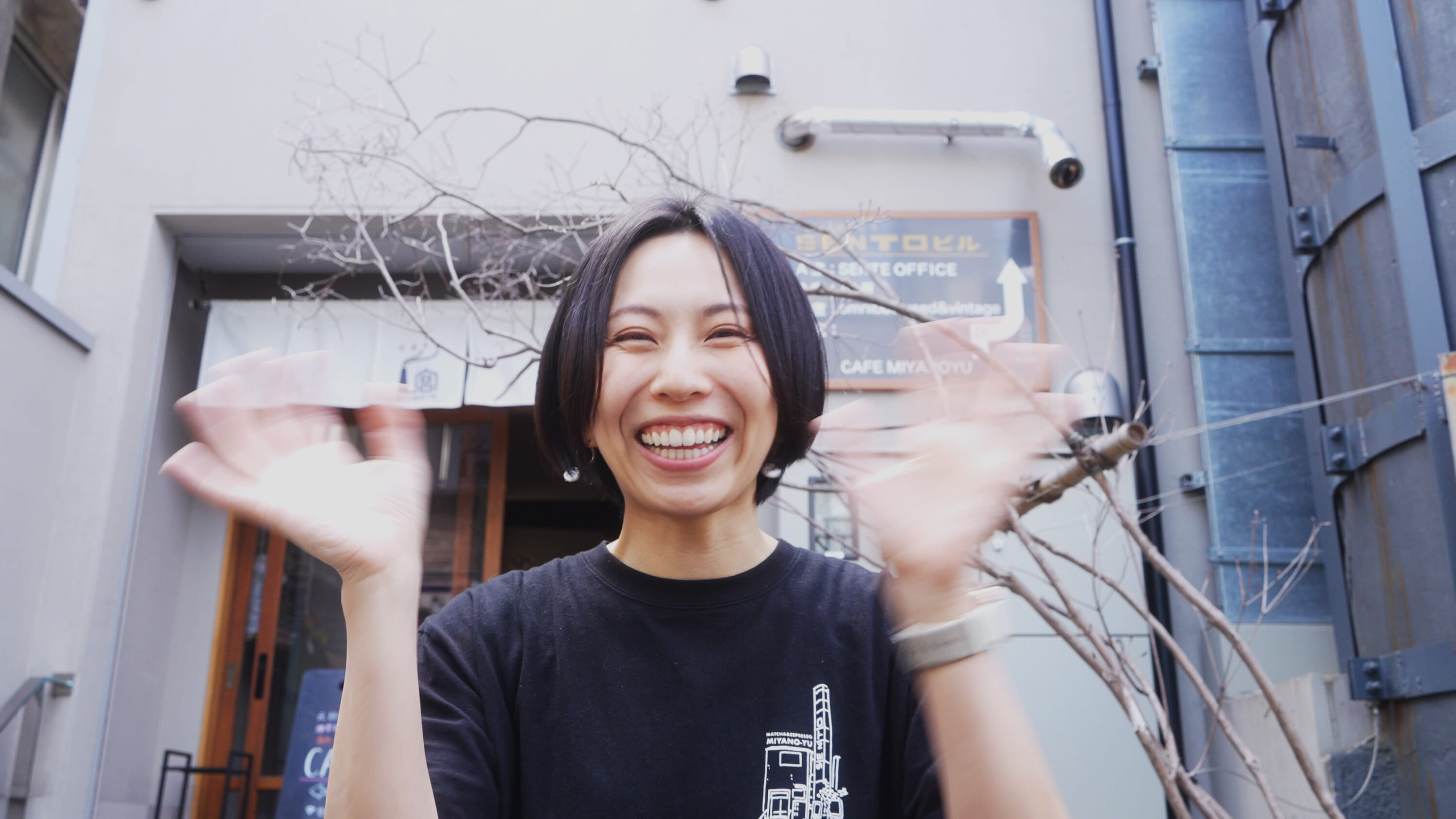
Creating and Curating Miyano-yu’s Menu
Following a decline in sento-goers, the 70-year-old building was saved from demolition by the architectural renovation firm Kenchiku Saikou Kikaku. It then opened as a cafe and gallery space in 2020.
Today, Miyano-yu acts exclusively as a cafe, with a menu consisting of matcha lattes, homemade sweets, craft beers, and, of course, coffee. While she sometimes has assistance, Osato tells me, the cafe is predominantly a one-woman operation. After training at Sensing Touch of Earth, another coffee shop in the neighboring Asakusa area, Osato became the manager at Miyano-yu.
She’s so well-versed in her trade, it’s difficult to capture the process of Osato making coffee. She acts with swift, deft precision and presents me first with a latte, smooth in flavor and presented with beautiful latte art in Bodum glasses. Next, I sample the matcha latte, perfectly sweetened to cut through the naturally bitter flavor of the tea leaves. I leave our visit with more than a slight caffeine buzz.
These matcha lattes, Osato explains, are popular with both Japanese visitors and foreign clientele, of which she has seen a substantial increase in numbers. More recently, Osato has also developed a coffee jelly, as well as an espresso and matcha affogatos for sweeter-toothed customers.
In the right-hand corner of the cafe sits a rather imposing machine. As Osato explains, this majestic coffee bean roaster operates in 10-minute cycles to produce specialty coffee beans, which are then left for up to five days to achieve the desired flavor. With blends ranging from bitter Brazilian to the sweeter flavors of Peru, these beans are available in 200-gram bags to take home, as well as to enjoy in store in the form of flat whites, lattes, espressos and more.
Paying Homage to the Sento
Even before you enter Miyano-yu, the water tower marked “Sento” outside speaks to the building’s history. Throughout the store, thoughtful homage is paid to past bathers. As you walk up the entrance stairs, there are sets of mini lockers once used for shoes, now inhabited by coffee cups and bags of beans. After heading up a tiny stepladder at the back of the store, there’s a mezzanine seating area cushioned by colorful pillows and paper lantern lights, which begins to fill up as the morning melts into afternoon.
Just around the corner from the bar, a short corridor brings you into a large room, flooded with lights and a jungle of houseplants. This is the cafe’s main seating area. On your left, there is a tatami seating area where the bath itself used to be. As we walk around and explore, the numerous nods to the former sento that have been retained become apparent, including the high stool chairs that are covered with fluffy bath-mat seat coverings. You’ll also find the faucets that sento-goers would have used for pre-bath cleansing along with the plastic stool and buckets that were also used.
In the larger dining area at the back — which can accommodate up to 40 people — there’s the original sento sign, instructing users on bathhouse etiquette, as well as an old-school thermometer. As we work our way around the space, there’s a gentle joy in uncovering these little details.
Original Artwork and Goods
While the cafe is no longer used as an exhibition space, Miyano-yu is full of artwork. As you enter the main sento room, the wall behind the high-stool chairs is decorated with a colorful mosaic, and on the back walls are two paintings by contemporary artist Yokoo Tadanori, created in collaboration with the Tokyo Bath Association.
At the storefront, there are Miyano-yu themed goods available to purchase, designed by Kana Ohashi, with whom the store recently did a collaboration. From the aforementioned long and short-sleeved T-shirts with sketched maps of the area, to Tote bags and even key rings, there’s plenty of merchandise to choose from. The green, white and black color scheme, Osato explains, was chosen to reflect the colors of matcha and coffee.
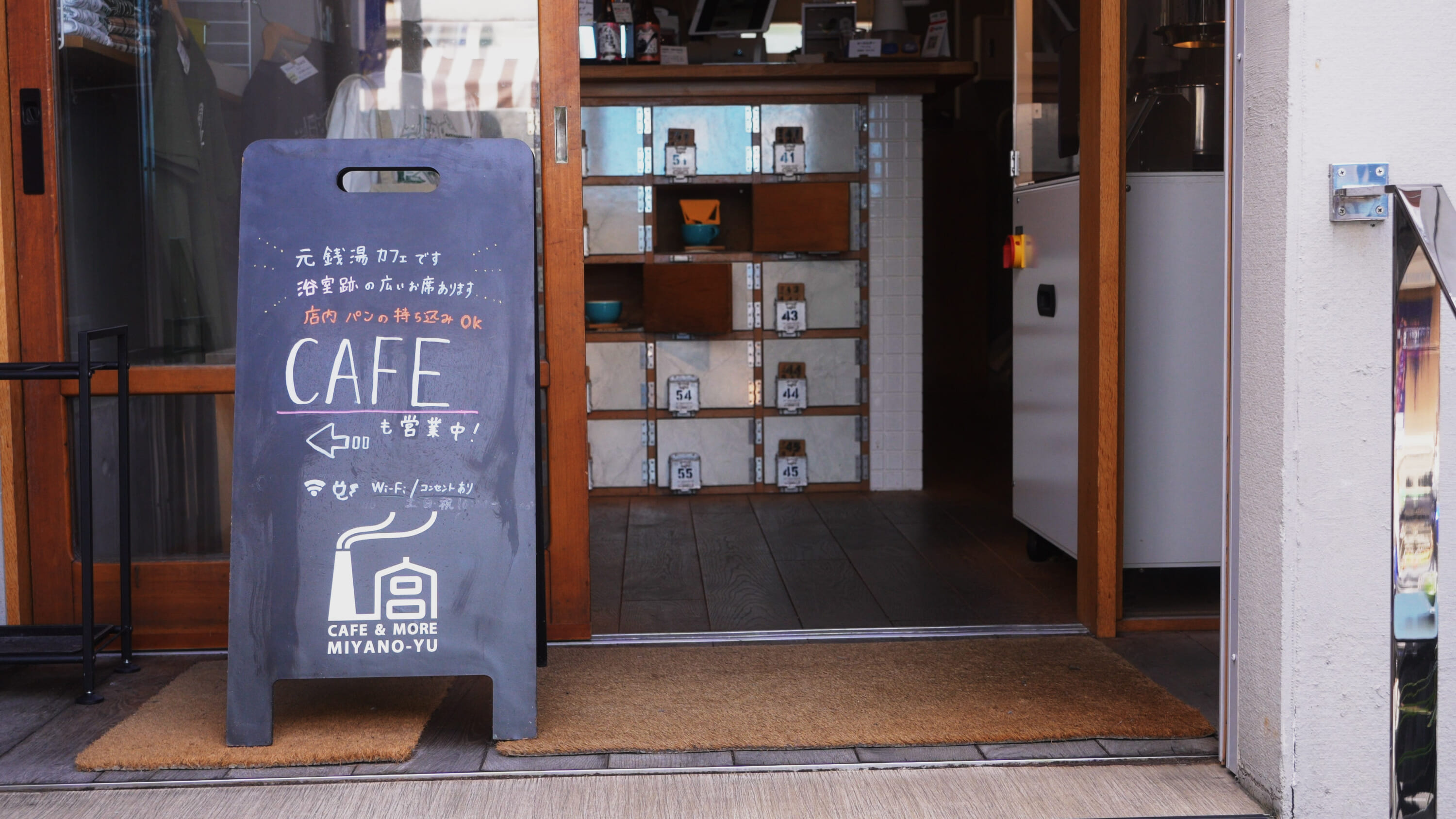
Whether you’re looking to catch up with a friend over an affogato, or simply wish to sit and sip an expertly-brewed coffee, there’s no better place to do so than at Miyano-yu. In fact, so taken with the whole environment, I decided to leave the place with my very own Miyano-yu T-shirt to wear proudly at home.
More Info
Address: 113-0031 Tokyo, Bunkyo City, Nezu, 2 Chome−19−8 SENTO 1C.
Instagram: miyano__yu.

